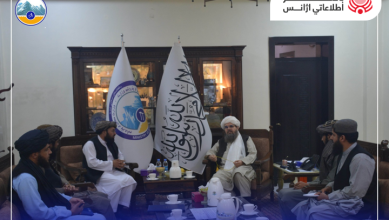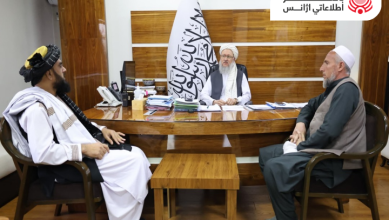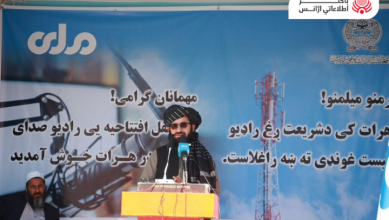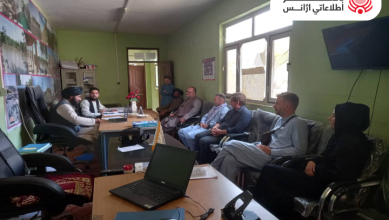
Sunday March 12, 2017
Kabul (BNA) A one day conference initiated by the Swedish embassy on ‘Safeguarding the space for free media in Afghanistan’ was held at European Union Headquarter here yesterday.
The conference which was attended by foreign diplomats and government officials, including the senior presidential advisor on public relation and strategic affairs as well as ambassador at large for freedom of expression, Nader Naderi, deputy minister of publication Sayeda Mojgan Mostafavi, Swedish ambassador Anders Sjoberg, media advocates, journalists and reporters, the participants discussed challenges before free media activities and the ways to find solution for them. Welcoming the participants, the Swedish ambassador said the event was being organized at the time that Afghanistan and the world facing the common security challenges. Besides presenting his condolence over attack on Sardar Mohamamd Daud Khan Hospital, Anders Sjoberg said the event was held for the third year in a row to remember Swedish reporter Nils Horner, 51, who was killed in unprecedented execution-style attack in Kabul’s diplomatic district in 2014 as well as to promote free media activities and institutionalize freedom of expression in Afghanistan.
“2016 has been a bloody year for Afghan media and I want to pay tribute to sacrifices of Afghan journalists during the noblest way of reporting,” the ambassador said, adding many world countries, including Sweden struggling with fake news being circulated through the social media, calling such news concerning in Afghan social media pages during such juncture of time. The ambassador during his remarks hoped the conference to find solution for countering such propaganda and fake news in social media. Meanwhile Nader Naderi, presidential senior advisor and ambassador at large to freedom of expression thanked Swedish embassy for initiating such conference, adding Afghanistan has passed 15 years with commitments toward safeguarding the free media activities. “Regulating the media activities has been government’s main achievements. With inauguration of the new government, the law on access to information was codified and a presidential decree prevented government officials to disturb free media activities across the country,” Naderi said. Hinting to immunity of journalists, the presidential advisor said besides Taliban, the government officials have been also the main challenge before the safety of journalists, adding the safety committee was established to address such challenges which clearly shows government’s commitments toward free media activities and institutionalization of the freedom of expression.
“The reporters should feel responsible themselves while reporting, considering the situation, people and the national interest,” Naderi added, saying no one can prevent free activities of media, neither government nor the insurgents. Addressing the conference, deputy minister of publication Sayeda Mojgan Mostafavi said Afghanistan has got much achievements comparing the regional countries, however according to her violence against journalists remained a major challenge, which has also contributed to putting Afghanistan into red list of the Reporters’ sans Frontier index.
“Fake news in social media is still a main challenge, but new law on social media regulation to be soon finalized,” Mostafavi said, hoping 2017 to be a good year for media activities in Afghanistan. The conference then followed with two panels and QA sessions. The first panel with Najiba Ayoubi head of the Kleed group, Najiba Maram director of publications at the Ministry of Information and Culture, Mujib Khelwatgar CEO of Nai agency, Danesh Karokhel member of the commission on access to information as the members and Fayaz as the moderator discussed the challenges before the access to information in the country.
Pointing to unique achievements in term of media activities, Khelwatgar said the information needed to be classified, so that to ease access to information. According to him there is no exact definition of the media, as there are different media operating in the country on behalf of the political parties, social organizations and some others which undermines the freedom of expressions. Meanwhile Shafiqa Ayoubi and Danesh Karokhel pointed to challenges and achievements of the media, calling proper implementation of the law on access to information as the main solution for challenges. The second panel with Najib Sharifi member of the safety committee for journalists, Lotfullah Najafizada editor-in-chief of Tolo News, Maria Raheen head of journalism faculty of Balkh University and Seddiq Seddiqi spokesperson for Ministry of Interior as the members discussed challenges and solutions for safety of journalists in the country. Calling increasing insecurity in the country as the main challenge before safety of the journalists, Najib Sharifi said Daesh threatens the free media and freedom of expression, adding the safety committee was established to deal such challenges in close cooperation with line ministries.
Meanwhile Tolo News editor-in-chief said in a country where nearly six thousands of security personnel, 11 thousands of civilian and over 15 thousands of insurgent were killed last year, there would be differently attacks on journalists. “After 20 January 2016 attack on Tolo staffs, a media which has one thousands of employees, most of our staffs were forced to leave the works due to fears from the insurgents, but they were committed to their job and continued their duties,” Najafizada said. According to him the policy of Tolo News didn’t changed after the attack and continued to cover the incidents timely. Maria Raheen another participant of the second panel spoke related to women presence in media, calling insecurity the main challenge before women presence in media.
According to her officials should cooperate and increase women’s leadership role not only in public spheres but also in media. Seddiq Seddiqi, spokesperson to ministry of interior said Afghan security forces pay much attention to fight against terrorism, so that to defend the territorial integrity. According to him, Taliban tried to disturb media activities after US-led NATO forces withdrawal, but couldn’t reach to their vicious goals. He called establishment of safety committee as the biggest achievement of government and its commitment toward media activities in the country. The second panel also followed by questions of the participants and answers from the panelists. The conference was ended with closing remarks by the Swedish ambassador, calling the debates as energetic between the government officials, media advocates and the participants.
Arefi




